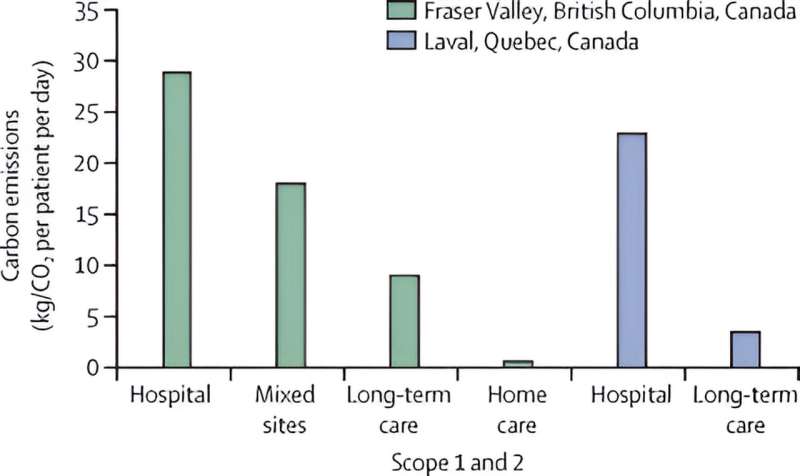Providing end-of-life care at home has environmental benefits, says study


A study led by Canadian researchers sheds new light on how to approach decreasing the carbon footprint of our health care system by thinking critically about end-of-life care.
The study, led by a team at McMaster University and published in The Lancet Planetary Health, reveals a “triple win”: what is best for patients is also best for the health care system and its costs and the environment.
Key highlights of the study include:
- One day in hospital has three times the carbon footprint compared to one day in long-term care. This is significantly greater than home care. Many patients in hospital are waiting for long-term care beds, and the longer they wait, the worse it is for the planet.
- An oversized amount of health care resource use, and subsequent carbon footprint, comes in the final year of life. This is because many people spend their final days in a hospital, despite wishing to die at home, surrounded by family. Advanced care directives should be in place early to allow a person to die with dignity, as per their own wishes.
“Environmental sustainability is a lens we can look through across the life-course, including end-of-life care decision-making. We know that dying in hospital is resource-heavy, and more importantly, not the place where Canadians want to spend their final days. Finding solutions that help people age and pass away peacefully in their home is ideal. It’s good for the individual and their family, more affordable for the health system, and better for our planet. A rare triple-win,” says the study’s first author, Myles Sergeant.
Researcher Prof. Sonia Anand adds, “This analysis shows us just how important it is for clinicians to have end-of-life care discussions with their patients, to honor their wishes, which in many cases will also reduce the carbon footprint.”
More information:
Myles Sergeant et al, Managing greenhouse gas emissions in the terminal year of life in an overwhelmed health system: a paradigm shift for people and our planet, The Lancet Planetary Health (2024). DOI: 10.1016/S2542-5196(24)00048-2
Citation:
Providing end-of-life care at home has environmental benefits, says study (2024, May 9)
retrieved 9 May 2024
from https://medicalxpress.com/news/2024-05-life-home-environmental-benefits.html
This document is subject to copyright. Apart from any fair dealing for the purpose of private study or research, no
part may be reproduced without the written permission. The content is provided for information purposes only.





